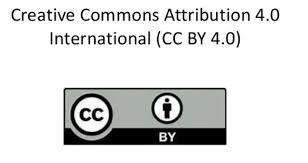Effect of mechanical scarification on seed germination of selected weeds occurring in rice field
DOI:
https://doi.org/10.47440/JAFE.2021.2207Keywords:
Germination percentage, Linear growth, Productivity, Rice-weed, Scarred and unscarred.Abstract
Worldwide crop production is affected by different kinds of weeds that reduce yield in agricultural practices. Therefore, for the observation of weed seeds germination and the effect of mechanical scarification of the seed coats on the germination of selected weeds was assessed in the laboratory conditions. For the assessment of scarification effects on seed germination, the seven different kinds of weed genotypes were collected from rice fields in Kumaltar, Lalitpur, Nepal. The collected seeds were kept for one month and after de-husking of each species of 25 seeds was allowed to germinate in the laboratory with unscarred (normal) and scarred conditions on blotters at temperature 25±5ºC and experimental observation was done for 14 days. Among all the species, the highest germination (96%) was observed in scarred seeds but the lower germination (58%) was observed in normal seeds of B. pilosa compare to scarred seeds. The unscarred seeds of A. conyzoides seeds did not germinate at all, while the scarred seeds germinated up to 20%. But the seeds of A. viridis were germinated well in both scarred (84%) and unscarred conditions (80%). The germination of E. colona was also greatly influenced by scarification which increased from 4 to 32%. Similarly, the germination of E. crus-galli, P. barbartum, and S. acmella was also increased by 12, 20, and 4% respectively on scarification. It was observed that scarification of the seeds of the weeds under study quite satisfactorily improved the germination rate. The linear growth of the seedlings was also affected by the scarification of the seeds. In conclusion, the weed seeds management is needed for better production in the cropping system.






 Publisher:
Publisher: 